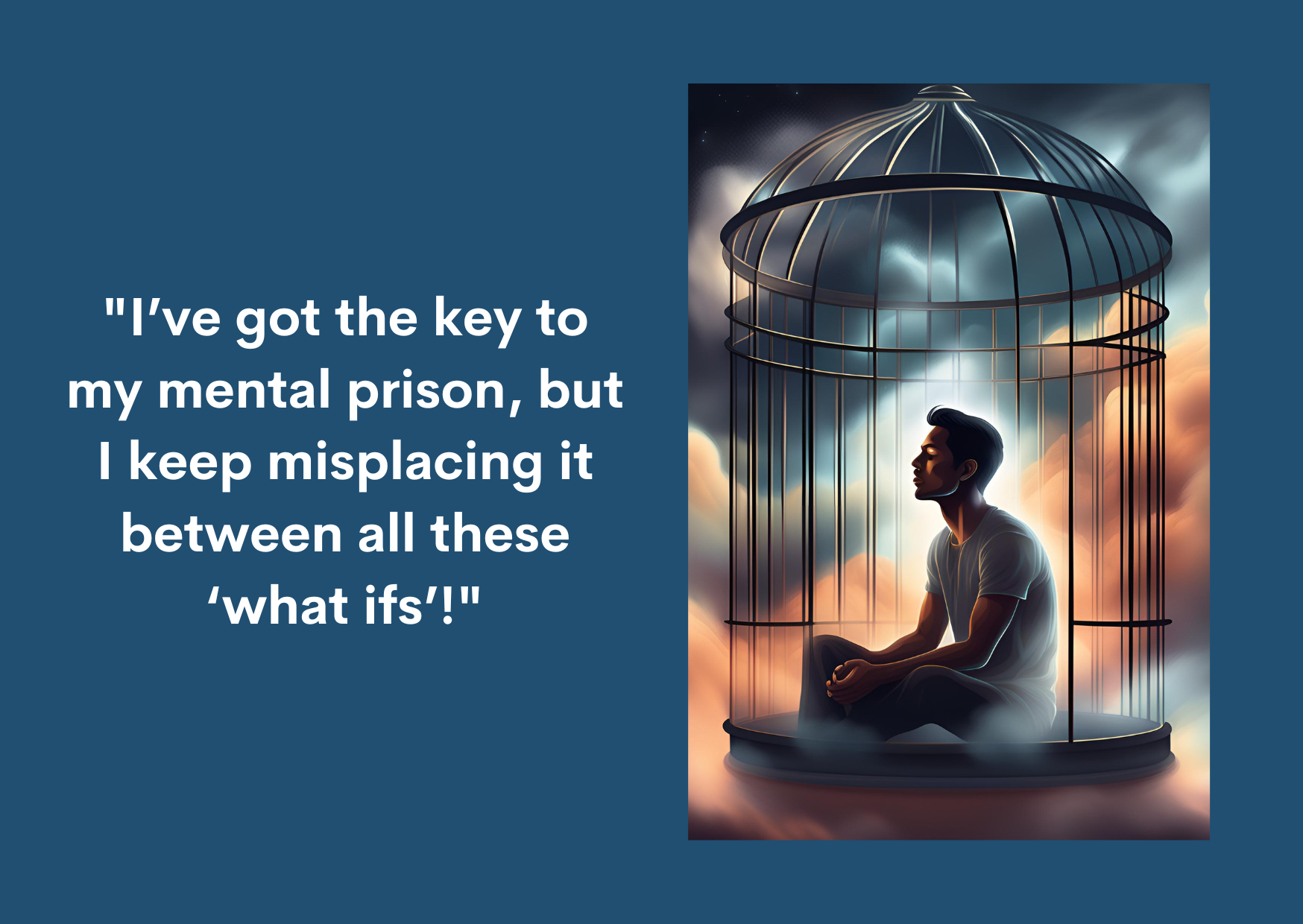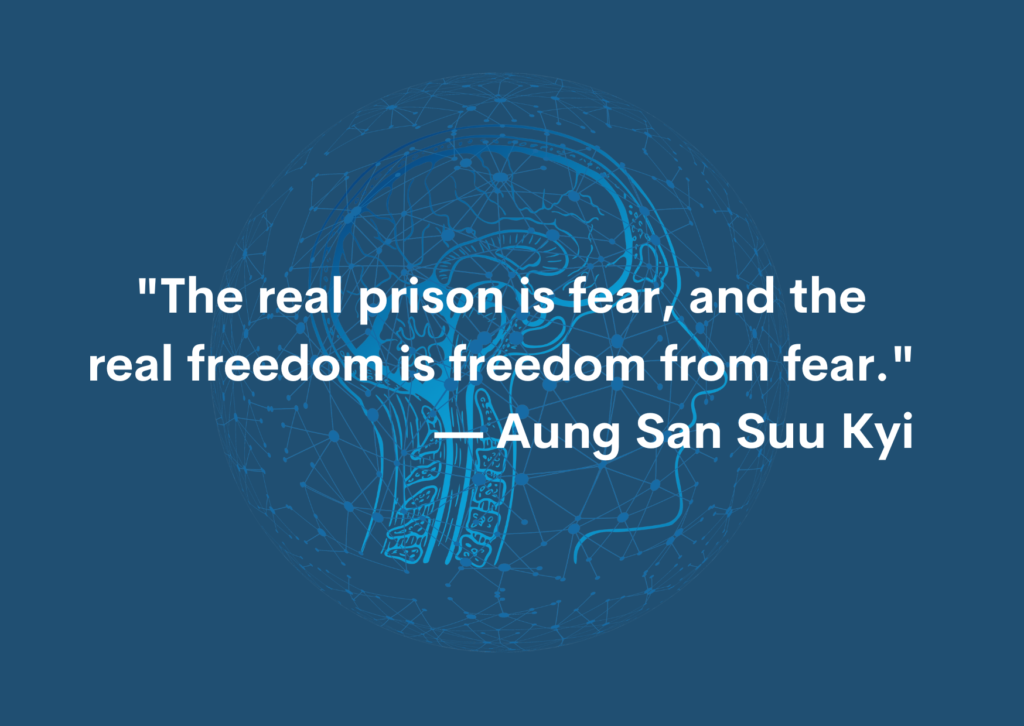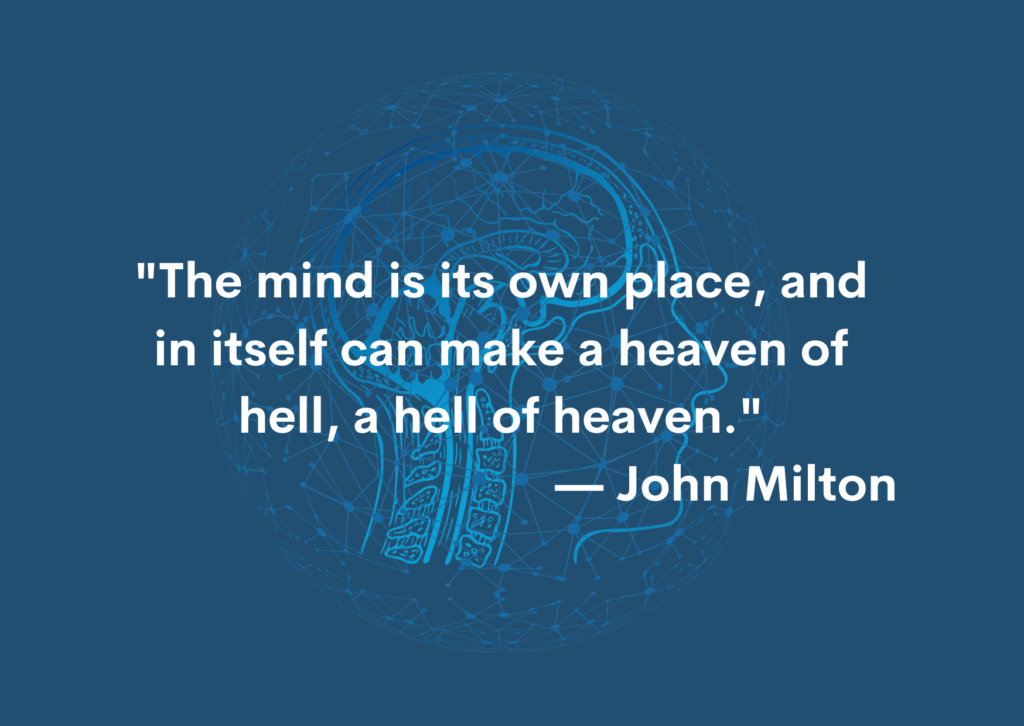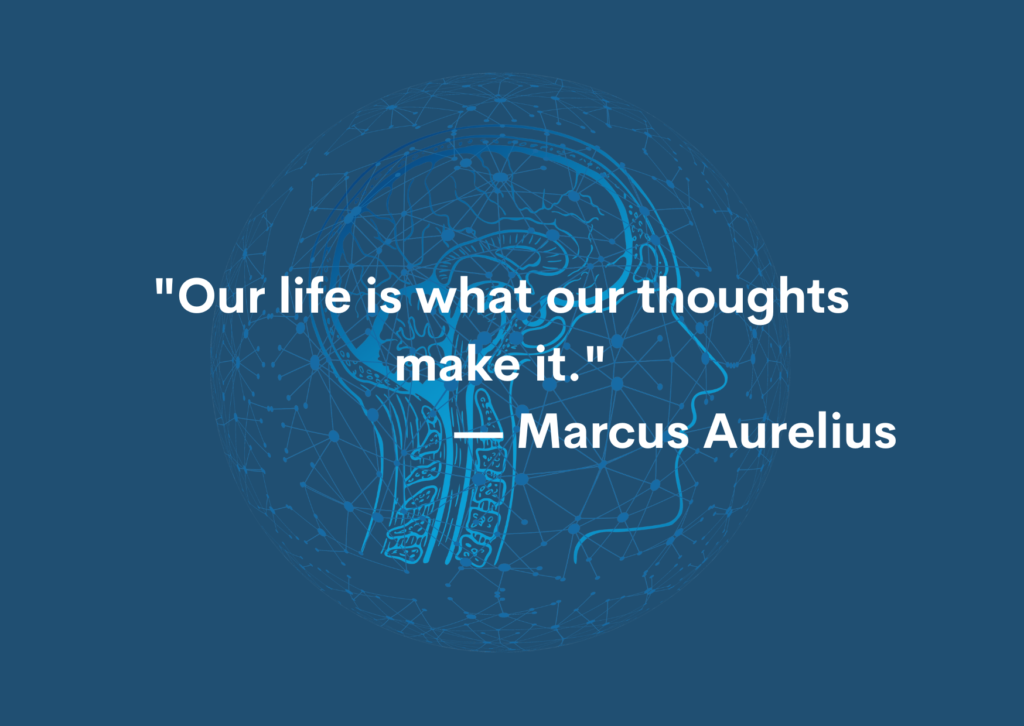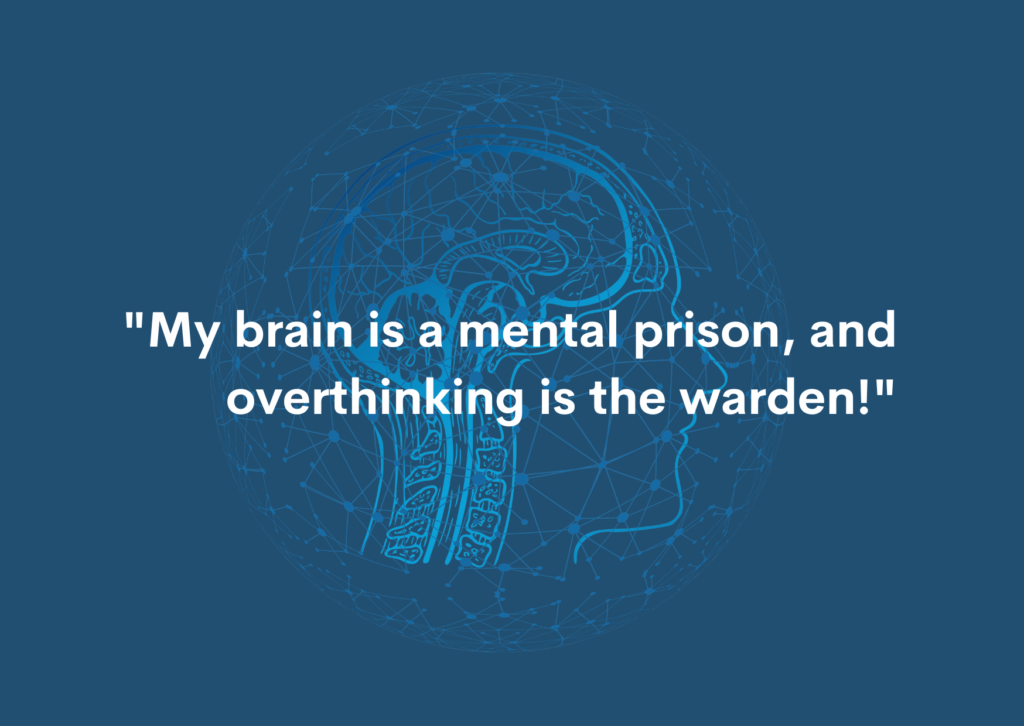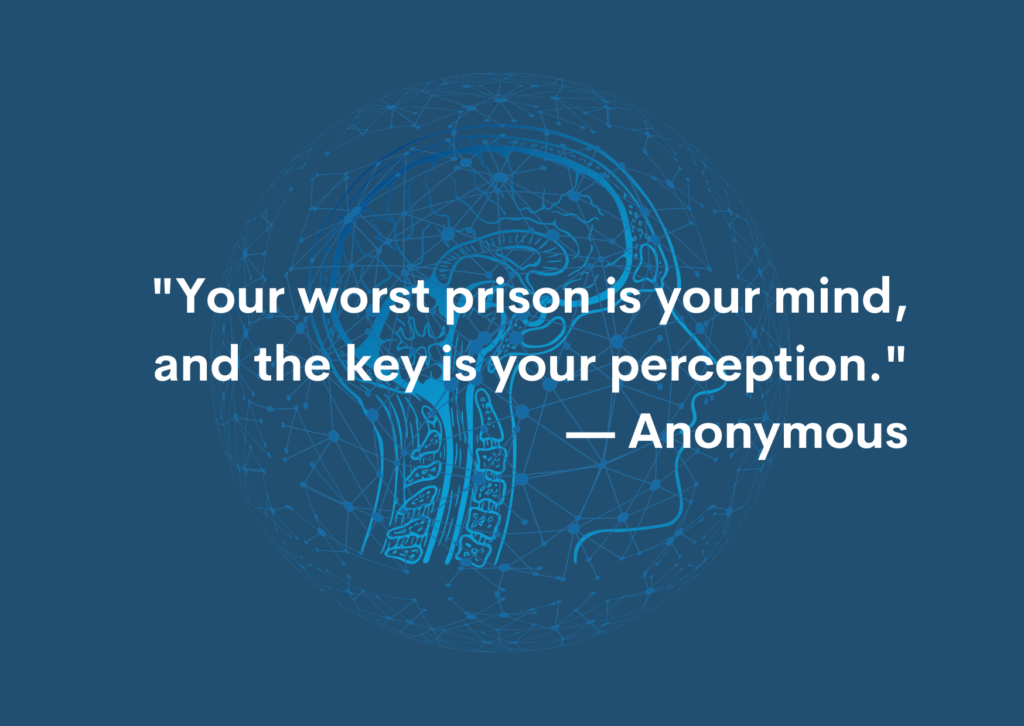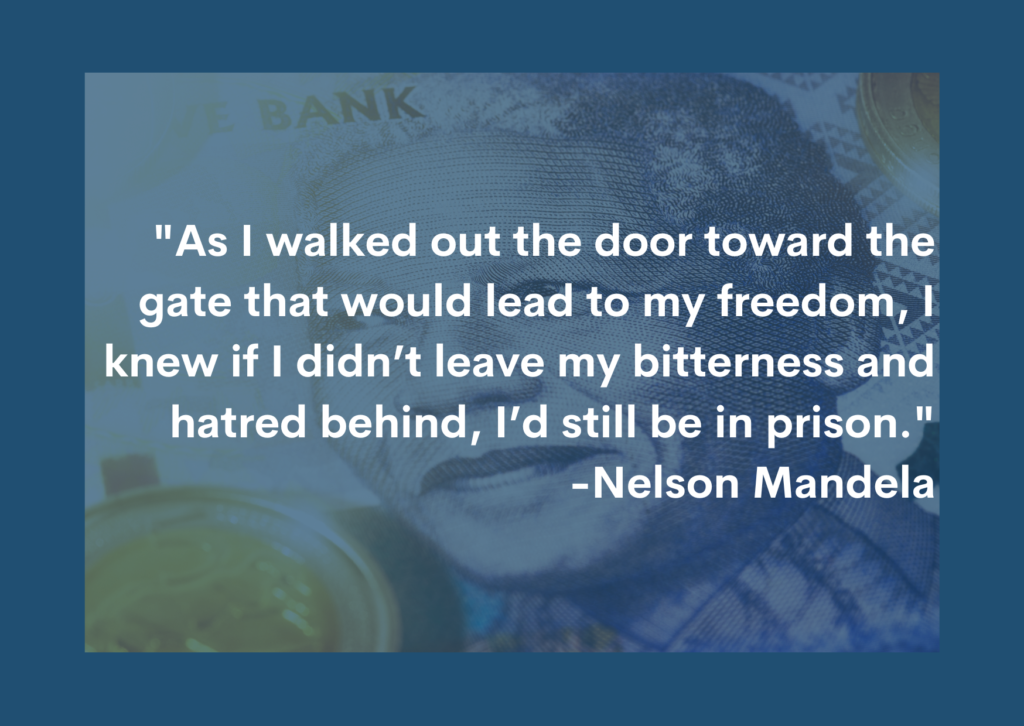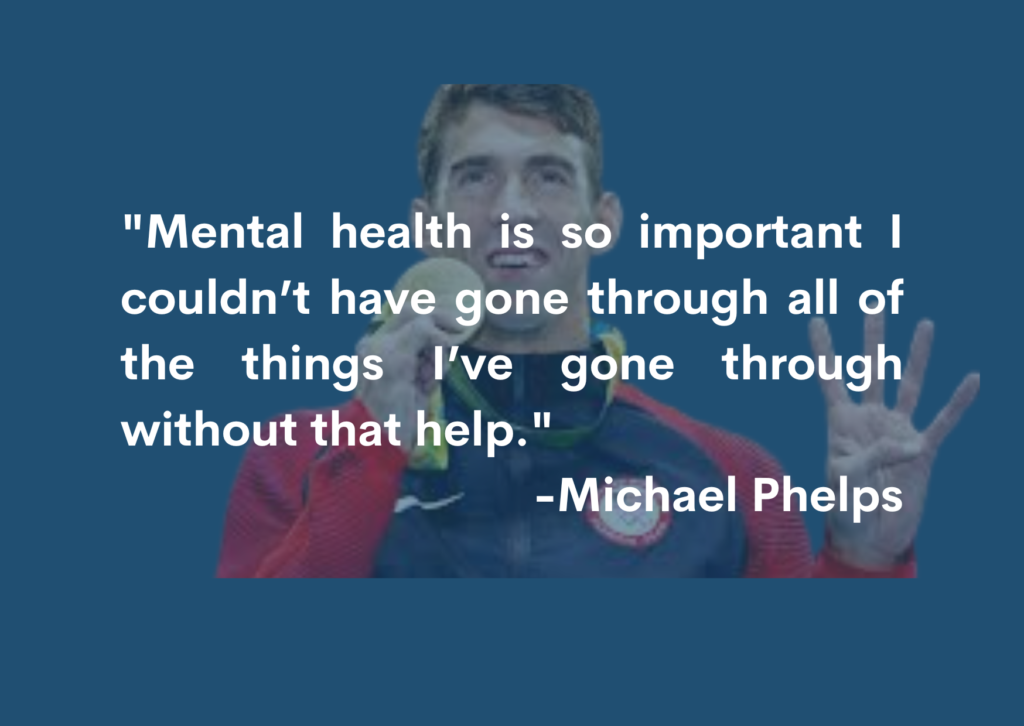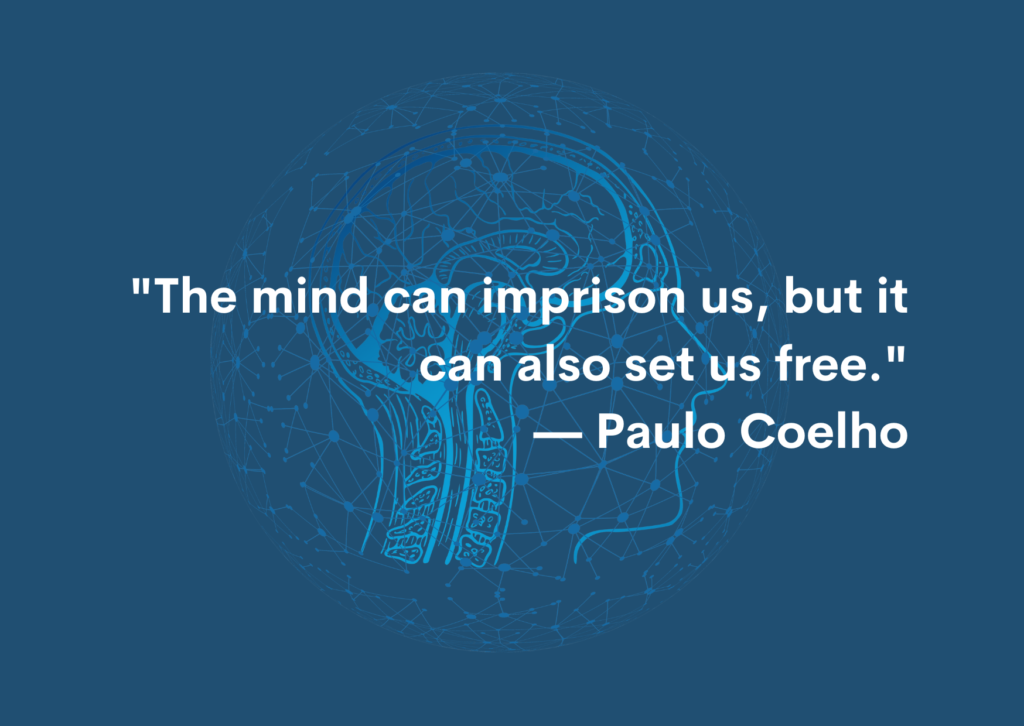Introduction
Ever feel like your brain is holding you hostage?
Welcome to the club! Let’s break out of this mental Alcatraz together. Imagine your mind is a Netflix series, but it’s stuck on the same boring episode. That’s a mental prison.
In this blog, we’ll explore what a mental prison is, why we create it, and how to escape. Spoiler alert: it involves a lot of self-compassion and maybe fewer cat videos.
What is a Mental Prison?
A mental prison is like being trapped in a never-ending loop of bad dad jokes except it’s not funny. It’s a state where your thoughts, emotions, or beliefs keep you stuck in a cycle of negativity and self-doubt.
These prisons are built from repetitive thoughts that evoke painful emotions, turning your experience into a miserable one.
Sometimes, pleasant emotions make you forget the prison, but this just adds to the misery because you feel like you’re constantly alternating between heaven and hell.
Quote: “The mind is its own place, and in itself can make a heaven of hell, a hell of heaven.” — John Milton
Real-Life Examples
Consider the story of John, who couldn’t stop overthinking a simple text message for hours. Or Jane, who felt trapped by her fear of failure, preventing her from pursuing her dreams. These are everyday examples of mental prisons.
What Psychological Prisons Do We Create?
Our most vicious jailer is our unhealthy self-talk—our inner critic that savagely sabotages us with haunting doubts and harsh judgments.
We’re our own worst enemy, a prisoner of our “monkey mind,” feeling unsettled or restless and easily distracted by thoughts that bounce around like agitated apes.
Key Takeaway: Negative self-talk and societal expectations are major contributors to mental prisons.
Self-Criticism
Ever been your own worst critic? It’s like having a personal heckler in your head. This negative self-talk can be so powerful that it creates a mental prison, trapping you in a cycle of self-doubt and low self-esteem.
Recommendation: How to Stop Negative Thoughts
Expectations
Society’s expectations are like those annoying pop-up ads—they just keep coming! We often feel the need to meet these expectations, which can create a mental prison of stress and anxiety.
Why Do People Live in a Mental Prison?
Fear and anxiety are like annoying neighbours who never let you sleep. They can trap individuals in a mental prison, making it difficult to break free.
Past trauma is another major factor. It’s the ghost that haunts your mental attic. Time to call the Ghostbusters!
Quote: “Fear is the prison of the heart.” — Anonymous
Fear and Anxiety
Fear and anxiety can be paralyzing. They create a mental prison by making you constantly worry about the future or dwell on the past, preventing you from enjoying the present.
Past Trauma
Past trauma can have a lasting impact on your mental health. It creates a mental prison by keeping you stuck in a cycle of pain and suffering.
In What Ways Do People Live in a Mental Prison?
From overthinking what to wear to worrying about that awkward thing you said in 2010, mental prisons are everywhere. If you find yourself binge-watching cat videos to avoid real life, you might be in a mental prison.
Key Takeaway: Mental prisons manifest in daily life through overthinking, avoidance, and self-sabotage.
Daily Life
Mental prisons manifest in daily life in various ways. You might feel stuck in a job you hate, a relationship that’s not fulfilling, or a routine that’s draining your energy.
Behavioural Patterns
Common behavioural patterns indicate someone is living in a mental prison. These include procrastination, avoidance, and self-sabotage.
When Your Mind Feels Like a Prison and You Zone Out to Escape
Zoning out is like hitting the snooze button on your brain. Effective, but temporary. Coping mechanisms like binge-watching TV shows or scrolling through social media can provide temporary relief but don’t address the root cause of mental prison.
Quote: “The mind is a wonderful servant but a terrible master.” — Robin Sharma
Coping Mechanisms
Common coping mechanisms people use to escape their mental prisons include substance abuse, excessive screen time, and overworking. While these might provide temporary relief, they often lead to more problems in the long run.
Mindfulness
Mindfulness is like giving your brain a spa day. Ah, relaxation! It involves being present in the moment and observing your thoughts without judgment. This can help you break free from the mental prison.
Recommendation: Life Awakening: Mindful Living Journey
Prisoner of My Own Mind: Escape Toxic Thought Loops, 7 Steps
Step 1: Admit you have a problem.
Step 2: Laugh at yourself.
Step 3: Repeat steps 1 and 2.
Here’s a more detailed guide on how to escape toxic thought loops and break free from a mental prison.
Key Takeaway: Breaking free from toxic thought loops involves acknowledging the problem, challenging negative thoughts, and practising self-compassion.
Step-by-Step Guide
- Acknowledge the Problem: The first step to solving any problem is acknowledging it exists. Admit that you’re stuck in a mental prison.
- Identify Toxic Thoughts: Pay attention to your thoughts and identify the ones that are toxic or negative.
- Challenge Negative Thoughts: Question the validity of your negative thoughts. Are they based on facts or assumptions?
- Replace Negative Thoughts: Replace negative thoughts with positive or neutral ones.
- Practice Self-Compassion: Be kind to yourself. Remember, everyone makes mistakes.
- Seek Support: Talk to a friend, family member, or therapist about your struggles.
- Take Action: Take small steps towards your goals. Celebrate your progress, no matter how small.
Practical Tips
Try yoga, or meditation in your living room. These activities can help you relax and break free from the mental prison.
How to Escape the Mind?
Think of mindfulness as the ‘Ctrl+Alt+Delete’ for your brain. It involves being present in the moment and observing your thoughts without judgment.
Therapy is like having a personal trainer for your mind. No sweatbands are required.
Quote: “You have power over your mind—not outside events. Realize this, and you will find strength.” — Marcus Aurelius
Mindfulness and Meditation
Mindfulness and meditation can help you escape the mental prison by teaching you to observe your thoughts without judgment. This can help you break free from negative thought patterns.
Therapy and Support
Therapy and support systems are crucial for overcoming mental prisons. A therapist can help you identify the root cause of your mental prison and develop strategies to break free.
Real Stories of Famous People
Even celebrities aren’t immune. If they can escape their mental prisons, so can you! Learn from the pros—they’ve been there, done that, and got the T-shirt.
These Real-life stories of overcoming mental prisons can inspire and motivate you to break free.
Nelson Mandela: Breaking Free from the Prison of Anger
Nelson Mandela spent 27 years in prison for his anti-apartheid activism, but his true mental prison was the anger and resentment he felt toward his captors. During his time in physical confinement, Mandela worked on freeing his mind from hatred and bitterness.
He chose forgiveness over revenge, understanding that holding onto anger would only further imprison him. After his release, he led South Africa into a new era of reconciliation and equality, becoming a global symbol of peace and leadership.
Key Takeaway: Mandela’s story shows that true freedom starts in the mind, and forgiveness is one of the most powerful ways to break free from internal imprisonment.
Michael Phelps: Breaking Free from Self-Doubt and Depression
Michael Phelps is the most decorated Olympian of all time, yet despite his success, he struggled with deep depression and feelings of inadequacy. After the 2012 Olympics, he even contemplated suicide. Phelps realized that his mental health was the real obstacle, not external competition.
He sought therapy and worked to understand and manage his emotions, leading to a healthier and more balanced life. Today, he advocates for mental health awareness, showing that even the most successful individuals can be trapped by their minds.
Key Takeaway: Phelps’ journey illustrates that no amount of success can free you from mental struggles unless you actively address and manage them.
The Role of Self-Compassion in Breaking Free
Self-compassion is like giving yourself a mental high-five. It’s about being kind to yourself and recognizing that everyone makes mistakes.
Quote: “You, as much as anybody in the entire universe, deserve your love and affection.” — Buddha
Understanding Self-Compassion
Self-compassion involves treating yourself with the same kindness and understanding that you would offer to a friend. It’s crucial for mental health and well-being.
Recommendation: Why Don’t I Love Myself? Understanding Self-Love
Practicing Self-Compassion
Be kind to yourself. You’re doing great, even if you forgot to water your plants. Practice self-compassion by acknowledging your mistakes and forgiving yourself.
Reflect and Identify: Your Mental Prison Activity
Now, dear readers, after understanding what a mental prison is and how it affects your life, it’s time to identify your mental prison and take steps to fix it.
Activity: The Mental Prison Journal
Objective: To help identify your mental prisons by reflecting on your thoughts and behaviours.
Instructions:
- Find a Quiet Space: Choose a quiet and comfortable place where you won’t be disturbed for about 15-20 minutes.
- Grab a Journal or a Piece of Paper: You can also use a digital device if you prefer typing.
- Reflect on the Following Questions:
- What are the recurring negative thoughts that I have about myself?
- Are there any specific situations or people that trigger these thoughts?
- How do these thoughts make me feel? (e.g., anxious, sad, angry)
- What behaviours do I engage in when I have these thoughts? (e.g., avoidance, procrastination, overworking)
- How do these thoughts and behaviours affect my daily life and relationships?
- Write Down Your Thoughts: Take your time to write down your answers to each question. Be honest with yourself—this is a judgment-free zone.
- Identify Patterns: After writing, look for patterns in your thoughts and behaviours. Are there common themes or triggers?
- Reflect on the Impact: Consider how these patterns have impacted your life. Have they held you back from achieving your goals or enjoying life?
- Set an Intention: Write down one small step you can take to start breaking free from your mental prison. It could be practising mindfulness, seeking support, or challenging a negative thought.
Example:
- Negative Thought: “I’m not good enough.”
- Trigger: Social situations where I feel judged.
- Feeling: Anxious and self-conscious.
- Behaviour: Avoiding social events and isolating myself.
- Impact: Feeling lonely and missing out on opportunities to connect with others.
- Intention: Practice self-compassion by reminding myself that everyone has insecurities.
By engaging in this activity, you’ll gain valuable insights into your mental patterns and start your journey towards mental freedom.
Remember, the first step to breaking free is recognizing the prison you’re in. Good luck, and don’t forget to be kind to yourself along the way!
Conclusion
Your mind can be a prison, but it doesn’t have to be. Break free and live your best life! Reflect on your mental prisons and take the first step towards freedom. With self-compassion and mindfulness, you can break free and live your best life.
Additional Resources
For more on escaping mental prisons, check out these books. No, they aren’t written by cats. Join a support group. It’s like a book club but for your brain.
Books and Articles
- “The Power of Now” by Eckhart Tolle
- “Radical Acceptance” by Tara Brach
- “The Untethered Soul” by Michael A. Singer
FAQ: The Prison of Your Mind
Q1: What does ‘the prison of your mind’ mean?
A1: The ‘prison of your mind’ refers to the mental barriers and limiting beliefs that hold us back from reaching our true potential. They can manifest in different ways, such as:
- Fear-based prisons: Fear of rejection, failure, or the unknown.
- Shame or guilt: Holding onto past mistakes or unresolved emotions.
- Cognitive distortions: Irrational ways of thinking, such as black-and-white thinking, catastrophizing, or personalization.
- Conditioning: Beliefs ingrained from childhood, culture, or societal pressures that limit our sense of identity and potential.
- Comparisons: Constantly measuring oneself against others, fosters feelings of inadequacy and frustration.
Q2: How can I identify if I’m trapped in the prison of my mind?
A2: You might be trapped if you frequently feel stuck, experience negative self-talk, or find yourself avoiding opportunities out of fear of failure. Signs include overthinking, excessive worrying, or feeling disconnected from your desires and goals.
Q3: Can I break free from the prison of my mind?
A3: Absolutely! The first step is self-awareness acknowledging the limiting beliefs that hold you back. From there, practising mindfulness, challenging negative thoughts, embracing discomfort, and taking small, consistent actions can help dismantle these mental barriers.
Q4: What tools can I use to escape my mental prison?
A4: Techniques like journaling, meditation, therapy, and reframing negative thoughts can help. Engaging in activities that push your comfort zone, surrounding yourself with positive influences, and setting achievable goals are also effective ways to break free.
Q5: Can others help me in this process?
A5: While the inner work must come from you, supportive friends, mentors, or therapists can offer guidance, encouragement, and perspective. They can help you recognize patterns you may not see and provide the tools to break them.
Q6: How long does it take to escape the prison of my mind?
A6: There’s no set timeline. It depends on the individual and the depth of the mental barriers. The key is to remain patient, persistent, and compassionate with yourself as you work through it.
Q7: How does freeing myself from mental barriers affect other areas of my life?
A7: Breaking free from mental limitations can lead to a more fulfilling and empowered life. It improves your relationships, boosts your confidence, enhances creativity, and opens doors to new opportunities you may have once feared or overlooked.

